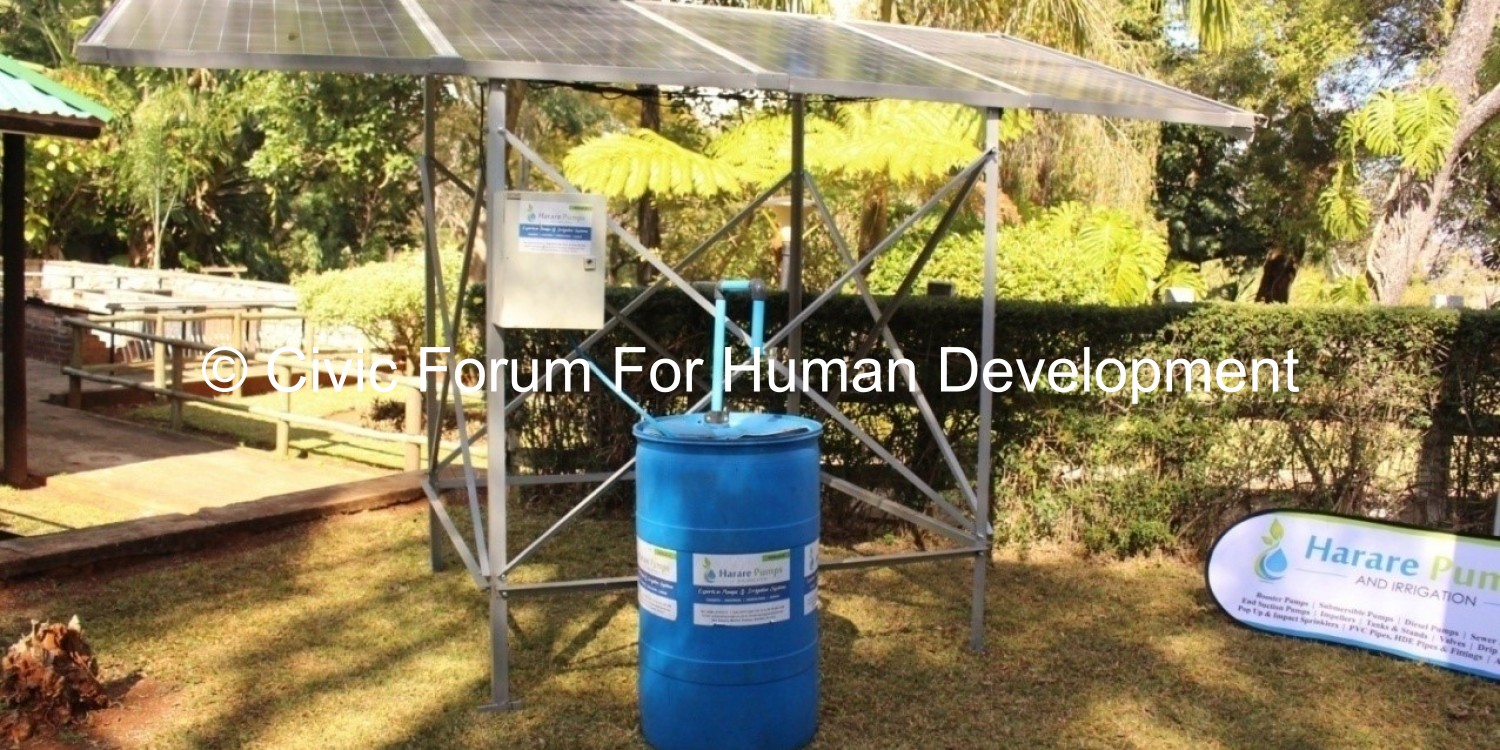
Renewable Energy Awareness Project (REAP)
The Civic Forum Human Development (CFHD) in partnership with Hivos has been implementing a project titled Strengthening Renewable Energy Awareness in Rural Areas of Manicaland Province in Zimbabwe (REAP). The objectives of the project were to raise awareness of CBOs, local leaders and citizens on renewable energy options available for use at household and community level; and to strengthen dialogue and learning platforms for increased uptake of renewable energy options in rural areas. The project was implemented in the four districts of Nyanga, Mutasa, Mutare and Makoni. The project was targeted at 16 Councillors; 20 Community Based Organizations (CBOs) and local Civil Society Organizations (CSOs); 120 traditional leaders; 16 officials from the targeted 4 districts (4 officials per district); and 8 officials from resident Government departments and Ministries (2 per district). The project managed to reach out to 34 councillors across all the districts, 27 Community Based Organisations (CBOs) and Civil Society Organizations (CSOs); 7 traditional leaders, 16 officials from the targeted Rural District Councils (RDC) and 21 officials from resident Government departments and 2 officials from the Ministry of Energy and Power Development (MoEPD). The project implementation strategy was aligned to the global and national priorities that are in support of Renewable Energy Awareness. Globally, this included Sustainable Development Goals (SDGs) such as Goal 7 on ‘Affordable and Clean Energy’ and Goal 13 “Climate Action” and National Renewable Energy Policy (NREP).
Implementation of the project was justifiable in light of the Government Vision 2030 which seeks to transform Zimbabwe into a middle income nation by 2030. The design of the project enabled the rural communities to gain access to affordable and adequate renewable energy technologies that can support job creation and value-adding activities within the families at the household level in Zimbabwe. Through such activities households are able to accumulate the small levels of “surplus” or savings that facilitate access to education and health services, improved nutrition, or improved housing conditions that in turn enable them to gradually escape poverty through information and knowledge. CFHD worked closely with Rural District Councils (RDCs) and the government agencies in the respective districts. District Action Teams (DAT) who were responsible for driving project implementation at local level were established in each district and were made of personnel from the RDCs, relevant stakeholders and district resident government departments. The DAT approach was used to ensure effective participation of all key stakeholders to drive the whole planning and implementation of the project within a district. The DAT would range from 8-15 people each depending on how effective the RDC would be in mobilising relevant stakeholders at district level. DAT facilitated the planned activities through engaging people in the communities to actively participate in all key processes of the project. During the provincial reflection workshop that was held in Mutare in July 2020 to mark the end of the project, it was agreed by all the key stakeholders that there is need for successor project on REAP which would be aimed at consolidating District Renewable Action Plans (DREAPs) and scale-up renewable awareness in the remaining districts of Manicaland. Such a project would also integrate components of environmental protection and climate change.
Powered by Froala Editor